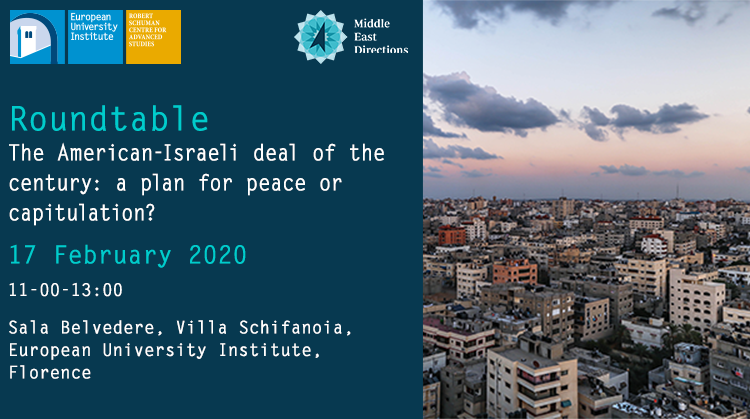
Abstract | On 28 January, the US president Donald Trump, in the presence of the Israeli Prime Minister Benjamin Netanyahu, announced his long-awaited Israeli-Palestinian peace plan, except that the Palestinians were not part of negotiating it. Trump said he has found a new way to make peace between Israel and the Palestinians. Israel will get the security it needs. Palestinians will get the state they crave. While Netanyahu endorsed the plan, Palestinian President Mahmoud Abbas rejected the document almost immediately, insisting, Jerusalem is not for sale .
This roundtable seeks to address this topic by answering number questions: what is new about this new deal and how it differs from previous efforts to reach a peace agreement since the Oslo agreement in 1993? To what extent the US and Israel can impose this plan on the Palestinians? And how the Palestinians can resist this plan? What role could the EU play in this crisis? and what lessons can we draw?
Speakers
Haneen Zoabi is currenty an STG Policy Leader fellow. She has been a member of the Israeli Knesset since 2009, the first Palestinian woman representing an Arab party, NDA, the National Democratic Assembly, which struggles for the rights of my people for dignity, justice and equality.
Caitlin Procter is currently a Max Weber Fellow at the RSCAS. Her current research focuses on the impact of protracted conflict, violence and displacement on young people in the Middle East.
Olivier Roy is currently professor at the RSCAS. Previously he has been senior researcher at the French CNRS and Professor at the EHESS (Paris).
Everyone is welcome.



